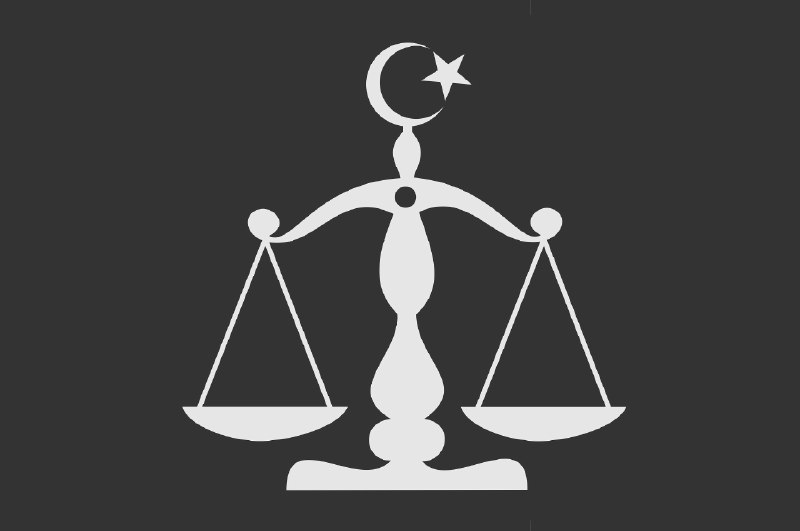Legal practitioners under the Christian Lawyers Fellowship of Nigeria (CLASFON) have advocated a review of 1999 constitution which will remove all references to the Shariah and Customary Courts of Appeal.
Recall that the Deputy Senate President, Ovie Omo-Agege, had on May 12 invited Nigerians to make input in the committee’s zonal public hearing on the review of the 1999 Constitution.
In a memorandum submitted to the Senate Committee on Constitution review, the group proposed a federal structure consisting of ten regions, adding that the issue of shariah or customary courts should be handled only at the regions if provided for in any of the respective constitutions.
Hate Speech Bill: Christian Lawyers Sends Message To Buhari Govt
“Each Region shall have its own Constitution, which shall conform to Chapter II, and IV of the 1999 Constitution, as amended, that is, the Fundamental Objectives and Directive Principle of State Policy; and Fundamental Rights, respectively. Subject to the provisions of Chapter IV of the Constitution on Fundamental Rights, the Regional constitution shall prescribe the system of government, political system and social order that best suits the constituent indigenous or ethnic nationalities comprising the Region.
“To this end, we propose the alteration of the 1999 Constitution to remove all references to the Sharia and Customary Courts of Appeal, which in the light of the proposed federal structure, are matters to be handled by the Regions, which they are free to provide for in their respective constitutions, with express jurisdictional limits and operational guidelines distinct from the jurisdiction of other courts established for the Region or Federation,” the memo read.
CLASFON further said that for the nation to make a headway, there should be a referendum that affords Nigerians the opportunity to discuss and vote on critical issues.
“Both the Regional and Federal Constitution shall make provision for the use of Referendum for the determination of critical issues of concern for the citizens including the issue of which region an ethnic nationality ordinarily falls under, taking into consideration language, culture etc,” it stated.
Professor Sagay Calls For Scrapping of 1999 Constitution, Reveals Why
The group also said that the regions shall have a Federal Capital Territory headed by a Mayor but that each region shall have an elected Governor as head of government.
“A true federal structure consisting of a minimum of six (6) Regions patterned along the existing geographical zones namely, South-South, South-West, South-East, North-Central, North-East and North-West; and maximum of ten (10) regions; and the Federal Capital Territory.
“The maximum regional structure of ten (10) regions shall be constituted from one or several mutually consenting ethnic nationalities. As a guide, we propose the following ten (10) regional structure:
Upper-Niger region; comprising Southern Kebbi, northern Kwara, and northern Niger State;
North-West region; comprising north/central Kebbi, Sokoto, Jigawa, Katsina, Kano and central and Northern Kaduna
North-Central Region; Gombe, Southern Kaduna, part of Plateau, parts of Bauchi and Niger states; Nassarawa and Benue
North-Eastern region; central and north Bauchi, parts of Borno, Yobe and Adamawa
Upper Benue region; Taraba, Adamawa, parts of Borno, Yobe
Lower Niger region; part of Niger state, Kogi and
South-East region; Abia, Anambra, Ebonyi, Enugu and Imo states
Midwest region; part of Bayelsa, Delta and Edo states
Niger-Delta region; part of Bayelsa, Akwa-Ibom, Cross-river and Rivers states
South-West region; Lagos, Ogun, Oyo, Osun, Ekiti and Ondo and part of Kwara state
The Federal Capital Territory, as Mayoralty.
Pirates Confraternity Warns Security Agencies Over Attack In South East, South South
CLASFON held that it would be in the best interest of the country for regions to control seventy percent of their resources while remitting thirty percent to the federal government.
“Each Region shall be in control of the resources within its area of influence and shall only contribute 30% of her total earnings and resources to the Federal government while retaining the remaining 70% thereof which shall equitably be applied for the benefit of the Region,” the memorandum read in part.
For the president, vice president and the Federal Executive Council, CLASFON proposed a single term of five years.
Follow us on Facebook
Post Disclaimer
The opinions, beliefs and viewpoints expressed by the author and forum participants on this website do not necessarily reflect the opinions, beliefs and viewpoints of Anaedo Online or official policies of the Anaedo Online.

